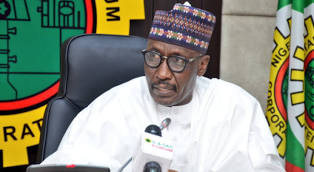As discourses on finding sustainable solutions for a de-carbonized energy future continue to gain stronger momentum globally, the Group Chief Executive Officer of Nigeria National Petroleum Company Limited, (NNPCL), Mr. Mele Kyari, has canvassed the need for global leaders to support “a just, differentiate transition” for Africa to enable it harness its hydrocarbon resources for the benefit of its current and future generations.
Kyari gave the charge on Monday to African leaders while speaking at a Regional CEO Panel organised by McKinsey Sustainability Company on the sidelines of the ongoing United Nations Conference on Climate Change (UNCCC), also known as the COP28 Conference, in Dubai, UAE.
The GCEO, who joined other global energy leaders from the United States, Holland, and Oman to highlight energy perspectives and insights on the evolving energy market, said the world must understand Africa’s peculiarities in addressing the effects of climate change on energy businesses.
He said: “I have always advocated for a differentiated and just energy transition. In Africa, we have different circumstances compared to other places in the world.
“In Africa today, 75 per cent of our population doesn’t have access to electricity, leaving us with biomass as a key energy source. The world needs to recognise that the most practicable thing today is to substitute what we have in the short term to close the energy gap for our rising population”, Kyari added.
With Nigeria projected to be ranked among the global top 10 economies by 2035 and third in terms of the global population by the same year, the industry expert said it was desirable that the energy poverty question be discussed as nations continue to synergize efforts to achieve net zero by 2050.
According to him, with abundant natural gas reserves of 206 trillion cubic feet (tcf) that have the potential to rise to 600tcf, Nigeria is currently utilising gas to drive its journey towards energy transition.
Kyari explained that NNPCL was already creating a regional gas pipeline network to supply natural gas across the African continent and boost its Liquefied Natural Gas (LNG) supply to the foreign market.
On the current efforts of the company to eliminate gas flares in almost all its gas projects, Kyari said the idea was aimed at harnessing such gas towards developing power plants nationwide to boost electricity supply, create employment opportunities, and trigger the nation’s industrial and economic development.
He further pointed out that to demonstrate the company’s commitment to a net-zero future by 2025, it recently signed up as a participant in the United Nations Global Compact in New York, becoming the first state-owned oil company to join the global initiative.






